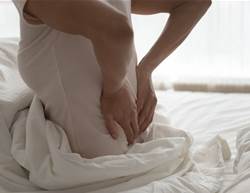It’s pretty much a given that no woman wants to deal with a vaginal yeast infection. But unfortunately, they can and do happen way more often than you’d like (which would be never).
Most women will get a vaginal yeast infection at some point in their life making this a pretty common issue women grapple with.
Yeast infections are caused by an overgrowth of the fungus Candida, explains gynaecologist Dr Jonathan Schaffir. You can have yeast in your vagina without causing an infection, but the infection happens when candida grows unchecked by the normal bacteria that grow in your vagina, he says.
Yeast infections can be caused by something that kills off the normal bacteria in your vagina, like antibiotics, or something that promotes the growth of yeast, like having high blood sugar, or trapping moisture against your skin with tight-fitting, non-breathable fabrics, Dr Schaffir says.
When you do develop a yeast infection, it’s not comfortable, says women’s health expert Dr Jennifer Wider. However, yeast infections can be confused with other vaginal issues like STIs, a skin allergy to latex or feminine hygiene products, a lack of estrogen in the vagina, or tears in the vagina, says Dr Sherry A. Ross, a women's health expert. Still, there are a few distinct symptoms to have on your radar:
- Burning, redness, and swelling of your vulva and vagina
- Pain when you pee
- Pain when you have sex
- Vaginal soreness
- A thick, white, cottage cheese-like discharge
The symptoms all boil down to this: Yeast can be irritating to the sensitive mucus membranes of your vagina and labia. That can cause burning, itching, and all of the other symptoms, Dr. Schaffir says. And, since the tissue in your vagina and labia becomes irritated and sore from a yeast infection, it can make sex and peeing painful, too. The unique discharge is caused by Candida, Dr Wider says, but not every woman with a yeast infection experiences it.
Worth noting: How much you experience these symptoms ultimately depends on you. Some women don’t notice them at all, Dr Schaffir says, while others can be in agony.
If you suspect that you’re struggling with a vaginal yeast infection, you can use over-the-counter antifungal medication to try to clear it up, Dr Wider says. But if that doesn’t do the trick or you think you’re struggling with recurrent yeast infections, talk to your gunaecologist. They can do a vaginal culture to confirm that you do, in fact, have a yeast infection and recommend next steps from there.
(Want to pick up some healthier habits? Sign up for FREE to get healthy living tips, weight loss inspiration, slimming recipes and more delivered straight to your inbox!)





.png&h=193&w=250&c=1&s=1)
.png&h=193&w=250&c=1&s=1)


